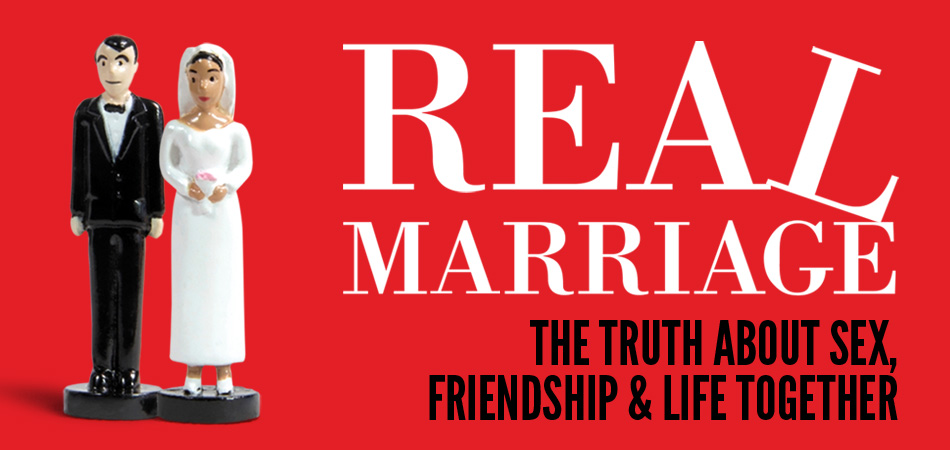[content note: sexual violence and victim blaming]
This chapter was a … struggle. I’ve known it was coming for a while, but I wasn’t certain how bad it would be. It deeply concerns me because if this is how Mark and Grace Driscoll and the pastoral staff of Mars Hill has been counseling sexual abuse survivors I’m horrified, and I’m grieving for all the men and women who have been harmed by their teachings.
There was one section that I didn’t have a problem with, and was encouraged to see– the one headed “Serving and Protecting your Children” on 136-37. She recommends giving children the words they need to describe their abuse, about the difference between good and bad secrets (surprise parties vs. “this will be our little secret”), and assuring them they won’t get in trouble if they relate something that happened to them. She also makes it clear how important it is to believe your children, no matter who they tell you harmed them, and I was grateful for that.
The rest of the chapter, though, was a nightmarish trainwreck and in my opinion is totally irredeemable. Everything she says is not just wrong but actively harmful.
I also think it will be helpful for me to simply allow what she says to speak for itself. Often I get asked why I’m reviewing this book, and this chapter is a perfect example. Grace says some horrific things, but Grace is not alone. She is one evangelical Christian woman among thousands of others and “biblical” counselors who will all tell sexual abuse survivors the exact same thing, and they’ll probably say it in similar ways.
Before we get to that, though, I want to highlight something that I think is revealing:
Was Mark really safe to talk to about it, or would his response cause more pain (123)?
What will happen to our church and our life if they know about my abuse (128)?
The first time I told Handsome about my rape and abuse, it never once occurred to me to wonder if he was a “safe” person. There was not a single second that I was worried if his reaction would hurt me. I was nervous about telling him, but not because I thought he would possibly think of me differently. And this breaks my heart for Grace because her gut knew that Mark’s reaction wasn’t going to be the right one (“Sometimes his responses caused fear all over again” 132); she makes casual references all through this chapter about how Mark had to learn and adapt in order to respond “appropriately,” and she talks about that as if it’s normal.
That is not normal. That is disturbing.
Also, the fact that she was worried about what the congregation at Mars Hill might think tells me that they had not been building a church that was safe for survivors. If a church hears “your pastor’s wife was in an abusive relationship” and reacts with judgment and condemnation, you have not been responsible leaders. Unfortunately, this is a failing endemic to evangelical churches everywhere.
Anyway, I want to spend the rest of the post showing how evangelicals use Christian-ese in order to victim blame survivors.
We wondered if it was really possible to trust each other again … (126) [implying that she had done something by being abused/telling him she’d been abused to be untrustworthy]
I had lived a double life, a pastor’s daughter and wife filled with deception and fear. (127)
That meant asking the Holy Spirit to restore any memories that needed to be brought into the light so I could be cleansed … and it meant Jesus’ righteousness alone had to replace all my old identity of abused, neglected, dirty, and worthless [sic]. (127)
We quickly realized there were large numbers of abuse victims attending our church … Mutual, honest accountability had always felt too vulnerable but it was part of the process I needed to prayerfully participate in. (128) [“accountability” is a term used among Christians that is intrinsically linked to sinfulness; men who struggle with porn have “accountability partners,” many small groups have “accountability times” where they confess sin to each other.]
I finally wanted to put my own sin and shame to death, through Jesus’ death on the cross. (128)
God gave me a few trustworthy women to encourage and exhort me and love me, despite knowing the truth about me. (129)
I never thought [healing] was possible, but that is what repentance and redemption feel like. (129)
To cope with the pain, I initially pretended to be a “good girl,” … without true repentance. (130)
It was an identity crisis [referring to different common coping mechanisms experienced by many survivors] because I wasn’t rooted in Christ. (131)
But we each need a new identity so that we don’t feel condemned by our sin. (132)
I sobbed off and on for hours over the pain of abuse and the conviction of my own sin. (133)
I could give many other examples, but the others need more surrounding context and I’m trying to keep the length of this manageable.
Survivors of abuse– any form of abuse– have not sinned. I don’t know how to stress that any more emphatically. The only person responsible for sin is the one doing the abusing, not the victim. Trusting someone not to hurt you? Not a sin. Expecting someone to be a decent human being? Not a sin. Hoping that your abuser is capable of change and growth? Not a sin.
There is a common argument among evangelicals, especially “biblical counselors,” that it is important to claim “responsibility for your choices”; very often they frame this in terms of “autonomy,” appropriating feminist vocabulary in order to cloak what they actually mean. In reality, what they’re doing is a logical fallacy: post hoc ergo propter hoc, more commonly known as “false cause.” Grace argues that because she chose to date her abuser and chose to have sex with him willingly, she is partly at fault for what happened. If she had not chosen to date him, or chosen to have sex with him, the abuse would not have happened.
And, in a ridiculously literal way, that’s true. However, just because the abuse happened after she started dating him does not mean that she was abused because she dated him. It happened because he was an abuser.
In my opinion, there are few “counseling” ideas more poisonous. I spent so many years trying to do this, trying to be “responsible by recognizing what I had done wrong,” not allowing myself to have a “victim mentality,” and all it did was cause agony.
There’s a secondary problem going on in this chapter, most clearly seen in this:
My judgment was clouded once I had sex with someone outside a marriage relationship. The abuse made me feel dirty and defiled, and the lie that I had no value became even more believable. (136)
This is what purity culture does to sexual abuse survivors. I don’t want to say that without purity culture no victim would ever feel “dirty” or “defiled” after being abused. Abuse is intrinsically a deep spiritual, emotional and physical violation and it will cause pain and suffering, regardless of whether or not purity culture exists. However, Grace feels that because she’d consented to sex that her abuse was inescapable (“I was filled with my own guilt from fornicating and told myself if I married him it would cover my sin somehow” 124), and she felt that way because purity culture teaches women that sex– even rape– makes women dirty and defiled.
And she’s clueless that the “lie that I had no value” comes from purity culture, the exact same lie she’s promoting all the way through this chapter.


